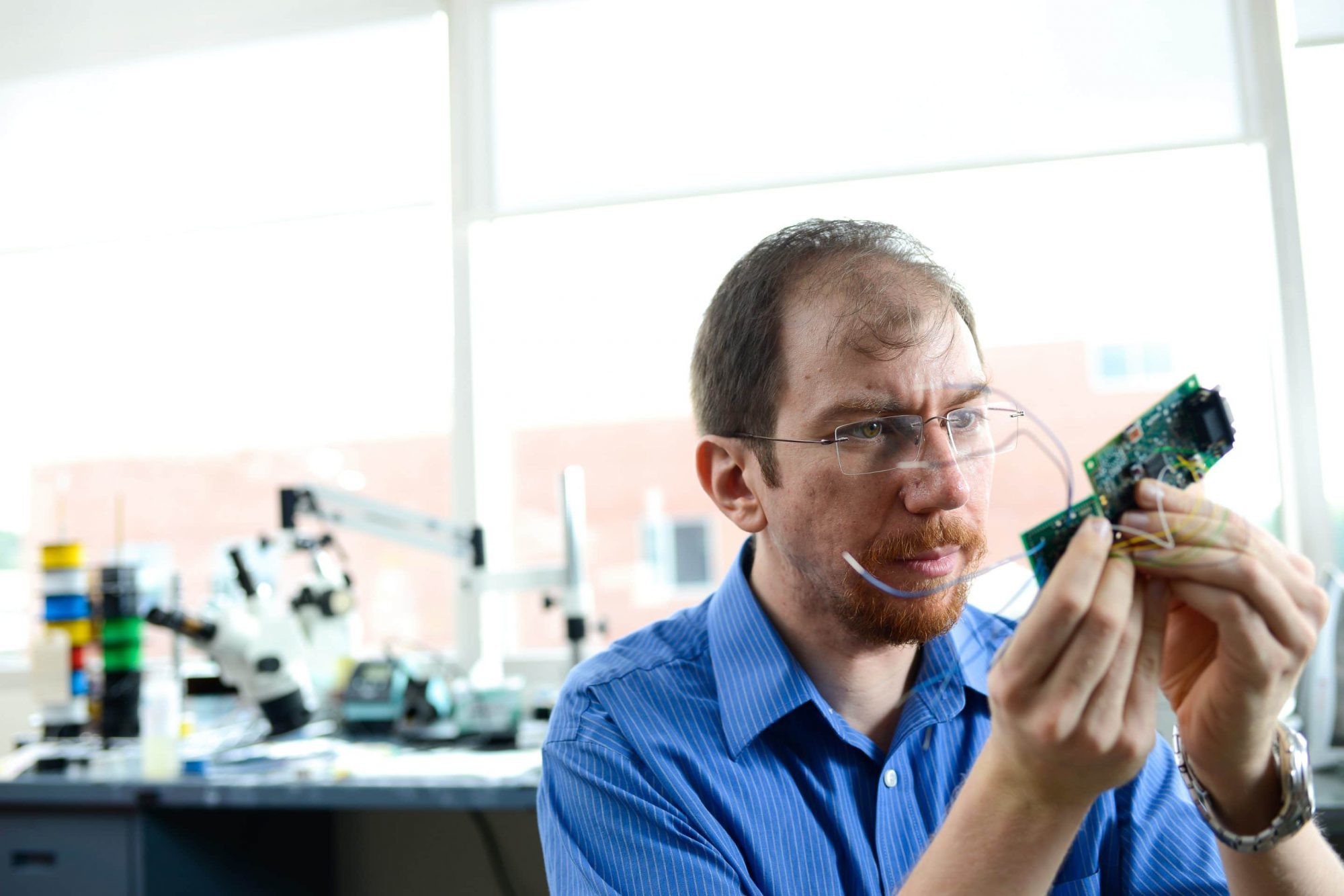
Bozkurt receives NSF CAREER Award
Dr. Alper Bozkurt, an assistant professor in the Department of Electrical and Computer Engineering at North Carolina State University, has received a Faculty Early Career Development Award from the National Science Foundation (NSF). The award, known as the NSF CAREER Award, is one of the highest honors given by NSF to young faculty in science and engineering.
February 4, 2016 ![]() NC State ECE
NC State ECE

Dr. Alper Bozkurt, an assistant professor in the Department of Electrical and Computer Engineering at North Carolina State University, has received a Faculty Early Career Development Award from the National Science Foundation (NSF). The award, known as the NSF CAREER Award, is one of the highest honors given by NSF to young faculty in science and engineering.
The award will provide $500,000 over five years to support Bozkurt’s project, “Bio-electro-photonic Microsystem Interfaces for Small Animals.” The research is supported by NSF’s Division of Electrical, Communications and Cyber Systems.
According to Dr. Bozkurt, “the emerging field of Bionic MicroSystems offers new engineering opportunities to solve real life problems. By fusing biological organisms with synthetic electronic systems, a quantum leap can be enabled in our ever-lasting engineering struggle to mimic relatively more complicated properties of biological machines, such as autonomy, intelligence, and biocomplexity observed across various length scales. This project targets to overcome major technical barrier in the way of such achievement, which is the inefficiency of state-of-art interfaces that would provide real-time information about the state of the biological organism. The proposed microsystem will open a physiological window to improve understanding of the physiology of small animals in their natural environment. The unique interdisciplinary and hands-on nature of this project will help us to reach out to all citizens – including women and men, underrepresented minorities, and persons with disabilities — and train them to use bioelectronics, biophotonics, and wearable wireless physiological systems.”
In addition, Bozkurt’s research group plans to design presentations, show and tell displays, and design contests; will develop educational course and lab modules; and will engage with the public at large by means of their collaboration with local museums.
“Our laboratory has had major contributions to the research area of biobots by enabling bionic insects for various purposes. Most of these studies was based on neural stimulation. This CAREER award will give us an opportunity to add efficient physiological sensors to our toolbox and extend our scientific explorations to various animals much larger than insects and monitor their physiological and health status,” explained Bozkurt.
“This award is also a recognition of my graduate and undergraduate research assistants’ enthusiasm, hard work and synergy that have defined and been leading the research area of ‘internet of bionic things.’ The Internet of Everything has already started to emerge and with the tools we propose, we will be able to connect small animals to the internet more efficiently for a better understanding of their biology.”
Bozkurt received his Ph.D. in Electrical and Computer Engineering from Cornell University in 2010. He joined the NC State faculty later that year.
